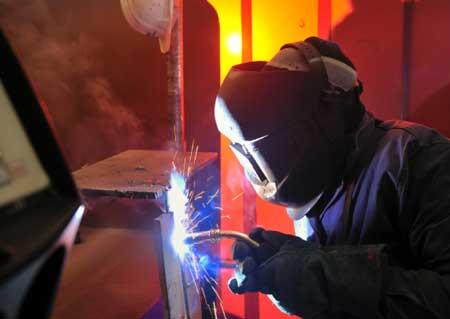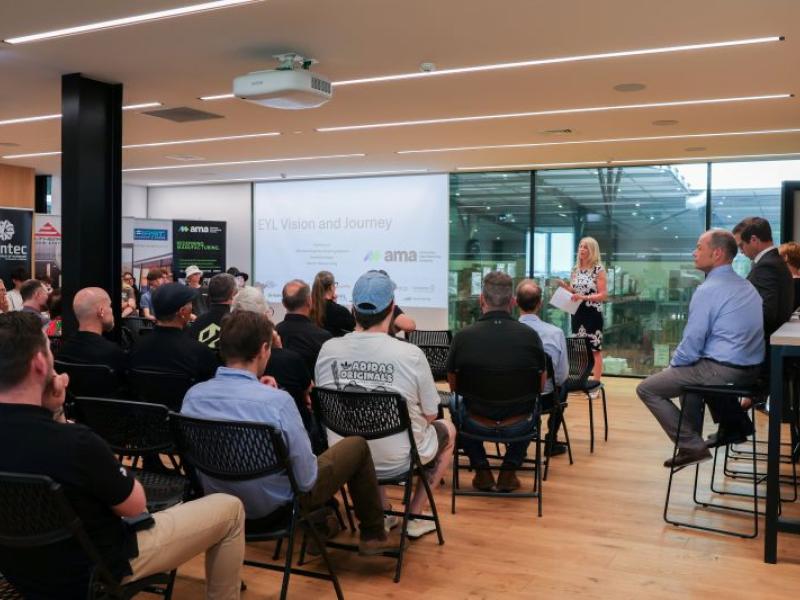|
Part one of a two-part series in which MESNZ secretary Craig Carlyle shares his views on the supply of tradesmen and training of apprentices in New Zealand, based on the Society’s survey results.
Regular readers of this magazine will be aware that the Maintenance Engineering Society (MESNZ) has given itself the task of discovering what is happening with the supply of tradesmen and training of apprentices in New Zealand. Focused by continuing unrest in the media, our epiphany was to look for solutions rather than simply add our grumbles to the debate. We could have relied on our collective experiences and opinions as a bunch of grumpy old men, but instead we resolved that we should learn as much as we could about the subject and gather as much industry opinion as possible. This was achieved with an Internet survey and interviews with industry players, suppliers, employers and identities.
While the MESNZ straw poll survey professes no professionalism in research methods (hell we are only dumb engineers!), the results are conclusive enough that to deny that an issue exists would be to declare that there is no elephant in the room.
Few would argue that our trades force now commands the global respect that it was once famous for. Either in engineering or with trades roots in engineering, Kiwis were held in awe for their abilities and achievements. Yes, the world has changed, but why have we slipped from our pedestal?
To understand the global perspective, I spoke at length with Ross Green, a Kiwi engineer whose global company, Drivetech, chooses to maintain a presence in New Zealand.
As Ross puts it, in the 1950s we were ‘king of the world’, based on our investment in infrastructure and technical competence. We suffered hugely in the 1970s at the whim of global economies and have looked like a possum caught in headlights ever since.
We now congratulate ourselves on our booming tourism industry without ever considering that the future of that industry can already be seen in places like Bali and Phuket.
The result of the dumbing down of industry places great pressure on companies like Drivetech. The arguments for retaining a presence in New Zealand no longer hinges on our engineering base; the skills are not just getting harder to tap into, they are disappearing. Global industry is about NOW, with the transition from concept to tooled prototype measured in days, not weeks. The only (perhaps romantic) reason for Ross’s company still connecting with New Zealand is our value as R&D innovators. Ross points out that New Zealand is the best country for inspired culture. We have an ideal market testing environment with pocket sized cities and increasing Internet connectivity.
From an R&D point of view, we should learn from the infrastructure of Boston and ensure our entire education system is geared to once again generate craftsmen that lead world standards. Where our relative success in history has stemmed from our emphasis on science, (Rutherford), we need to place greater emphasis on converting science into wealth-generating products and services. Take the iPhone, for instance – the infrastructure behind developing such technology and tooling could easily have come from New Zealand. As Ross puts it, “It is often the 71st idea that is the best and no-one is better at generating those ideas than Kiwis.”
Unlike other countries, our culture allows us to make suggestions without losing face. Our problem is that we can’t finish the idea and the skills to turn ideas into reality are disappearing. Ross does not have a labour cost issue in New Zealand; his issue is that there is no longer a labour supply here in the specialist skills that he requires. He also points out that as we lose the skills (for example, our Air Force strike force and associated sub-skillsets) we will never get them back.
Ross puts his finger on the societal aspect. In the world’s leading economies, trades skills are respected and represented, right up to board level. Craftsmen have enviable status in industry and new recruits clamour to obtain trade skills. Economies are based on entrenched value and depth, not stripping industry to match third world labour rates.
In New Zealand, we have evolved into a commodity supplier, sitting on our hands thinking “We are clever, we are innovative”. Unfortunately other countries are clever too, but they also work longer and harder. Ross points to leading economies as a pointer to a culture change. Today’s major economies like Japan and Germany were built on the back of post war US investment. To expect that kind of investment here is wishful. What is needed from our politicians is the testicular fortitude to map a path forward that is inspirational and achievable.
Success is obtainable, look what Sir Peter Jackson has achieved for the film industry. While it took one man’s kahunas and backing, a visit to Miramar is evidence indeed of a whole new craft pool supporting the success of one industry.
Overseas, the skill base is valued, maintained and has evolved to include new methods and materials. School leavers aspire to trades skills and only a small percentage move their focus onto degree level. The obsession of New Zealand Polytechs becoming “universities” can be compared with the British model, since rejected, which, in Ross’s words, “Simply generated third rate degrees. Ignore history at your peril.”
Interesting comments from a man who employs engineers and craftsmen globally.
The tradesman’s view
With Ross Green’s observations ringing in our ears, let’s take a look at what Kiwi tradesmen are saying. Our humble survey drew 80 responses – 89 percent of whom were aged 36 and above. The majority (97 percent) were male.
Our first survey questions to tradesmen revolved around the old apprenticeship board and its presence and value to them. The results showed that 60 percent had occasional to regular involvement with the authority; 67 percent had seldom or no site visits.
We asked respondents what the authority did for them. The resulting comments fell into two groups: either companies were large enough to include their own in-house apprentice masters in which case the interaction was highly disciplined; or, for more humble companies, the apprenticeship authority was a ‘grey ghost’ that governed and only got directly involved when you were in trouble. Valuable commentary when we consider the “modern” replacement for the role of apprentice masters: our ITOs (Industry Training Organisations). While industry grapples with the number and funding of ITOs, the obvious questions should be: “Are ITO’s relevant?” and “Could the government get a better bang for its buck with an alternative method of managing apprentices?”
|
The vast majority of tradesmen, 87 percent, rated block courses as vital or highly important to their trades learning. Comments included: “It made you much more aware of the available technology”, “You could measure yourself against your peers”, “Some guys really needed input from the tutors”.
When it came to personal growth and maturing, 76 percent claimed that block courses were vitally or highly important. Feedback included: “Opportunity to discuss with peers our work environment, skills etc”, “The tutors provided the mentoring I needed to get my act together away from the workplace”.
You need to complete an apprenticeship to fully understand what stands them apart from other tertiary or professional training; cadetships, diplomas and degrees. We asked tradesmen if there is a fundamental difference between an apprenticeship and other forms of technical/professional training? The result was an overwhelming 88 percent – who said YES! Comments included: “Apprenticeships are an effective way of developing personal and work skills”, “Invaluable for transferring knowledge to the younger generation”, “An opportunity to practice and develop skills”, “Hands on training and mentoring”.
My favourite comment though was: “Apprentices are taught from the start that efficiency, focusing on learning and applying correct skills and getting it right the first time are first principles in the trades. Poor work and scrap material can’t be hidden by clicking a button.”
Are schools doing the job?
With the knowledge that most of our respondents are now parents of secondary age children, we asked if the way we are streaming, preparing or teaching school children through the school system is doing a better job of developing interest and preparing potential apprentices. “No” was the response of 84 percent of those polled.
I wonder how the respondent who stated that “the hands-on teaching of metalwork [at school] provided the seed that now sees me managing complex, multimillion dollar projects” would have fared in the modern system!
The modern apprenticeship system replaces the old hours-based version with achievement standards that generally occupy the same timeframe of three to four years. With the fiddling with apprenticeship hours in the 70s and 80s in order to turn out tradesmen faster, we thought it opportune to harvest our respondents’ opinions on the ideal apprenticeship length. Seventy two percent voted for 8000 hours, with the next popular choice (16 percent) suggesting 6000 hours.
In our search for answers, we provided a 60 second opportunity to pass improvement suggestions onto John Key. The comments were prophetic: “Improve the linkage between schools and industry”; “Change the perception for young people”; “Incentivise the apprenticeship scheme.”; “Influence a culture change towards recognition that working with one’s hands can be exciting and profitable.”; “Introduce basic trades training in schools”; “Get back to basics”; “Return to the old system”; “Remove the ITOs.”
My favourite? “You can’t learn how to sharpen a drill bit using a computer.”
Wow! Unless tradesmen have a particularly bleary view of the world, no amount of spin doctoring is going to convince this group that we are doing an equally good or better job of developing new generations of tradesmen.
In part two next month, I’ll report on the survey responses from employers and trainers, identify ‘the elephant in the room’, and share some positive suggestions from the workshop floor.
Email: Criag Carlyle craig@transform.net.nz
|






